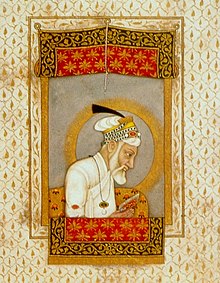When will Indian Parliament get the guts to have the the hearing like this . Seems Indian don’t have it..1300 Years of Jihad in India.
http://www.c-span.org/Events/The-Extent-of-Radicalization-Among-American-Muslims/10737420089-2/
http://www.c-span.org/Events/The-Extent-of-Radicalization-Among-American-Muslims/10737420089-4/
500 years of Islamic rule in
Starts the Islamic Rule of India 1200 AD
Ends with the death of Aurangzeb 1700 AD
India from 12 AD to 1857 Approx.. but de facto Islamic rule was broken in 1750 with the death of Aurangzeb
Islam finally broke through in India in 12 AD with the defeat of Indian Emperor Prithviraj Chauhan (1149-1192 CE), . The last Hindu king of Delhi
Defeat the Prithviraj Chauhan (1149-1192 CE) .
http://en.wikipedia.org/wiki/Prithviraj_Chauhan
http://en.wikipedia.org/wiki/Aurangzeb
So basically it is a 500 years of Muslim empire and that too it was not a consistent rule.
but Islamic nut case publicize as if 1000 years of empire and that too 100% control. if that was true then India would not have even 1% Hindus left like Iran
Prithviraj Chauhan (1149-1192 CE)
Prithvi Raj III, commonly known as Prithviraj Chauhan (1149-1192 CE), was a king of the Hindu Kshatriya Chauhan (Chauhamana) dynasty, who ruled the kingdom of Ajmer and Delhi in northern India during the latter half of the 12th century.
According to the later manuscripts of [Prithviraj Raso]], Chauhan belonged to the Agnivansha group of Rajputs, deriving their origin from a sacrificial fire-pit.Chauhan was the last independent Hindu king to sit upon the throne of Delhi.[citation needed] He succeeded to the throne in 1169 CE at the age of 20, and ruled from the twin capitals of Ajmer and Delhi which he received from his maternal grandfather Ballal Sena of the Sena Dynasty in Bengal. He controlled much of present-day Rajasthan and Haryana, and unified the Rajputs against Muslim invasions. His elopement in 1175 with Samyukta (Sanyogita), the daughter of Jai Chandra Rathod, the Gahadvala king of Kannauj, is a popular romantic tale in India, and is one of the subjects of the Prithviraj Raso, an epic poem composed by Chauhan's court poet and friend, Chand Bardai.
Prithviraj Chauhan defeated the Muslim ruler Shahabuddin Muhammad Ghori in the First Battle of Tarain in 1191. Ghauri attacked for a second time the next year, and Prithviraj was defeated and captured at the Second Battle of Tarain (1192). Sultan Ghauri took Prithviraj to Ghazni . After his defeat Delhi came under the control of Muslim rulers.
Abul Muzaffar Muhy-ud-Din Muhammad Aurangzeb Alamgir (4 November 1618 [O.S. 25 October] – 3 March 1707 [O.S. 20 February]),
The Killer of HINDU’s –The Kafirs –a Real A Hole..
Aurangzeb reading the Quran.
Stanley Wolpert writes in his New History of India that:
the conquest of the Deccan, to which, Aurangzeb devoted the last 26 years of his life, was in many ways a Pyrrhic victory, costing an estimated hundred thousand lives a year during its last decade of futile chess game warfare...The expense in gold and rupees can hardly be accurately estimated. [Aurangzeb]'s moving capital alone- a city of tents 30 miles in circumference, some 250 bazaars, with a 1⁄2 million camp followers, 50,000 camels and 30,000 elephants, all of whom had to be fed, stripped peninsular India of any and all of its surplus grain and wealth... Not only famine but bubonic plague arose...Even Aurangzeb, had ceased to understand the purpose of it all by the time he was nearing 90... "I came alone and I go as a stranger. I do not know who I am, nor what I have been doing," the dying old man confessed to his son in February 1707.[39]
Aurangzeb's tomb in Khuldabad, in 1890s
He died in Ahmednagar on Friday, 20 February 1707 at the age of 88, having outlived many of his children. His modest open-air grave in Khuldabad expresses his deep devotion to his Islamic beliefs. The tomb lies within the courtyard of the shrine of the Sufi saint Shaikh Burham-u'd-din Gharib (died 1331), who was a disciple of Nizamuddin Auliya of Delhi.[40]


No comments:
Post a Comment